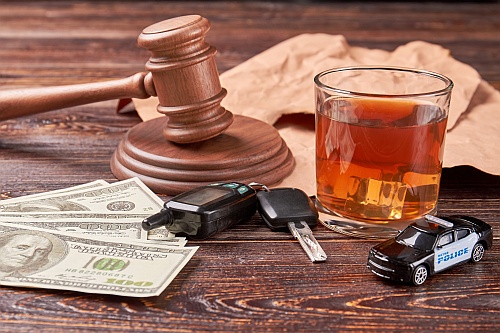- April 12, 2024
If you got pulled over and arrested for DUI, now you are likely facing two separate cases – one involving a DMV hearing and one criminal. What’s the difference? Basically, the DMV handles the administrative side, which deals with your driver’s license, while the criminal case is about whether you broke the law.
Knowing how these two cases work differently is key to how your Orangeburg DUI defense lawyer is building your defense strategy. Keep reading to get the full breakdown on how to fight your DUI on both fronts.
What Is a DMV Hearing in a DUI Case?
A DMV hearing is an administrative hearing held by your state’s Department of Motor Vehicles to determine whether your driver’s license should be suspended following a DUI arrest. It’s separate from the criminal court case for DUI charges. At the DMV hearing, the hearing officer will review the police report and any evidence, like blood alcohol test results, to decide if your license should be suspended.
At the hearing, the arresting officer and any witnesses will provide testimony about the traffic stop, field sobriety tests, and any chemical tests that were administered. You or your DUI attorney can cross-examine the witnesses and argue against license suspension.
The hearing officer will consider factors like your blood alcohol concentration at the time of the arrest, whether the traffic stop and chemical tests were conducted properly, your driving record, and any arguments made by you or your lawyer.
The DMV hearing is independent of the criminal court case. Even if charges are dropped or reduced in court, the DMV can still suspend or revoke your license. You only have a limited time to request a DMV hearing to challenge their decision. If you don’t request one, your license will automatically be suspended for a minimum of 4 months.
What Is a Criminal Court Case in a DUI Case?
A criminal court case means the state, city, or county is charging you with a crime for driving under the influence (DUI). The prosecutor, representing the government, will try to prove beyond a reasonable doubt that you were driving while impaired by alcohol or drugs.
First, you will appear in criminal court for an arraignment. There, you will hear the charges against you and enter a plea of guilty, not guilty, or no contest. If you plead not guilty, your case will proceed to trial. Pleading guilty or no contest means accepting the conviction and punishment.
If you plead not guilty, your DUI trial will be held before a judge or jury. The prosecution must prove you were driving, that you were impaired by alcohol or drugs, and that the impairment affected your ability to drive safely.
Penalties in criminal court are more severe than at the DMV hearing. Possible penalties include jail time, probation, fines, DUI classes, and an ignition interlock device. The outcome of your criminal court case can also affect how long your license remains suspended by the DMV.
An Orangeburg DUI Lawyer Can Help You Fight These Charges
The DMV hearing and criminal case are separate legal proceedings, but the outcome of one can affect the other. Only an attorney focused specifically on DUI defense will fully understand how to leverage the relationship between the DMV hearing and court case to your advantage.
The Orangeburg DUI Guy has extensive experience dealing with such cases. Call today at (803) 353-1969 for a free case review and to discuss how we can help you.


